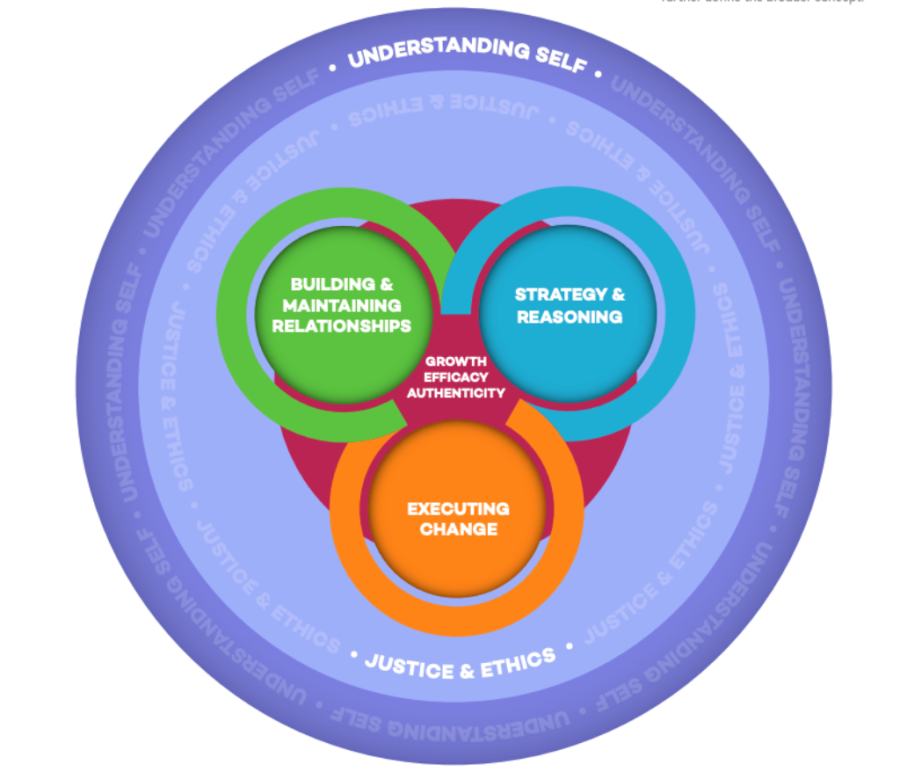It’s that time of year again. The gyms are filled with first-timers lifting weights with their backs, and the health food aisles in the grocery store are empty – just for all of those newly bought vitamins and powders to collect dust in the pantry. It seems that right around the start of the new year, everyone is itching to make some drastic change in their life that will fix all of their problems. However, most people only manage to attempt these said changes for a very short time before they give them up. So, what actually makes a change or resolution for the new year stick? Is there one that would solve all of our problems?
A common topic of conversation at the start of the year is “Did you make any New Year’s resolutions?” Answers vary, but they’ve all been heard before: drinking more water, eating healthier, and exercising more. However, have you ever heard someone tell you that they are going to try to make more sacrifices in the year ahead?
In today’s culture, sacrifice has a variety of connotations. Some can be considered good, such as sacrificing yourself to save someone else–which is considered very honorable–or sacrificing by working really hard to achieve success in life. Other connotations are bad, like the Hunger Games or pushing your mind or body to the limit, ultimately leading to harm. Regardless, a sacrifice sounds hard. It’s not a practice that involves just tiptoeing through the tulips, it implies giving something up, experiencing pain, and/or working intensely. These days, most people would prefer comfort over sacrifice.
I would like to present my thoughts about the benefits of sacrifice through the lens of Opus Dei. Opus Dei is a unique Catholic way of life and thought that describes getting closer to God through the work that one does. It was founded by St. Josemaria Escriva in 1928, so it is meant for the more modern times and represents a more modern way of experiencing God. Opus Dei can be a useful pathway for many reasons. Firstly, it offers a way to God through ordinary life. Many people can feel that they will never be close to God because they can’t see how what they want to do with their lives has any religious connection. They also may not feel inclined to suddenly start wearing sackcloth and fasting on bread and water to show devotion to God, like some saints have done. Opus Dei, however, encourages people to use whatever they are doing in their lives to get closer to God, which I will touch on more later. Secondly, it provides a positive way to deal with pain in life. Many people can feel that they can’t be close to God because of all the negative things happening around them or to them. Opus Dei, however, provides an alternative view to hard circumstances, and instead recommends that people use it as a tool to turn towards God.
Now, back to how sacrifice fits into all of this. Opus Dei recommends that you “offer up” any difficulties during your day in order to get closer to God. You may have heard the Bible verse “pray without ceasing” (1 Thessalonians 5:17) which sounds like a daunting task, especially when going about our busy days. How can you possibly pray all day while also talking to people, doing homework, playing sports, and eating dinner? The path of Opus Dei uses those small difficulties or sacrifices that one makes in their day as prayers to God. These sacrifices can even be for a specific intention. For example, it may be very hard to try to constantly pray for your sick grandma all day, but by offering small sacrifices for her throughout the day, your actions can be seen as one big prayer for her health. I would also like to offer other reasons why accepting sacrifices in life is a great practice to take up for 2022.
1. It encourages positivity. When we encounter difficulty in our lives, it is really easy to get in a bad mood, raise our voice, and cause negativity to reach others. When we see challenges as what they are–challenging–we are more inclined to feel like we are constantly being attacked day after day. We are more likely to feel bad about ourselves and how our lives are going. However, when we see a challenge as an opportunity, we are less likely to feel stuck in a cycle of endless negativity. When we suddenly learn that we have a pop quiz that we didn’t study for, we can think to ourselves “This is a great opportunity to offer this up for ___”, inserting whoever we know who may be struggling, sick, or in pain in our lives. While this doesn’t take away from all the pain of having to take a difficult quiz, it still allows us to elevate the task. The quiz goes from something hard in our day to something hard in our day that we are going to use to help someone else or to get closer to God. This also applies to people that we interact with. When we encounter someone who annoys us, St. Josemaria writes that we should use this advice: “Don’t say, ‘That person bothers me.’ Think: ‘That person sanctifies me.’” This practice is very important because it helps us to avoid cultivating hate for another person and damaging our relationship with them. This also leads to increased positivity in our thoughts and actions. It helps us to be an overall kinder and better person who is less likely to complain about our circumstances.
2. It helps us find purpose in our everyday life. Opus Dei is a Latin name, with ‘Opus’ meaning work and ‘Dei’ meaning God. Opus Dei encourages people to use whatever their job is to somehow help others and find God through that job, even if the job may not inherently be related to God at all. As high schoolers, we can use school as our ‘job’ as well. When you first think of school, you probably don’t think of developing a better relationship with God through the homework, tests, and stress. But we can use the work that we do at school to offer to God for whatever our intention is. St. Josemaria also once said “An hour of study is an hour of prayer” which means that we can elevate those many hours that we spend doing homework to something more. Again, I go back to the command from the Bible, “to pray without ceasing.” It seems pretty hard to me to try to be praying while also trying to focus on our assignments. If we go into studying by offering God all that we are about to do, especially for some specific intention, this helps us to find purpose in our study time. It becomes more than just about us, our grades, and our future. We can focus it on more important intentions. You might have also heard the term floating around on social media that describes ‘romanticizing your life’ by maybe lighting a candle, listening to certain music, eating certain foods… all in an attempt to make the mundane more interesting. These things are good to help keep us motivated when what we have to do or the life we are living seems really boring. But doing these things don’t account for the bumps in the road along the way. Lighting a candle or buying something new aren’t going to make the bumps go away or be any less awful. However, offering up those bumps in the road and making them more than just a part of yourself allows you to romanticize the hard parts of life too. I once heard an interesting quote on social media that said something along the lines of “Do something that you hate to do, but do it like you love it.” This is essentially what including more sacrifice in our life is all about, and it will surely reap benefits for us mentally, spiritually, and physically if we make it a habit. Sacrifice can apply to all kinds of things in life, but bringing God into them can make them a little easier to bear.
In summary, I hope that this article helped you to understand ways to combat the not-so-fun parts of life and how to make sacrifice a welcome part of your life, especially for 2022. God accepts whatever you want to offer, nothing that you give is too insignificant to be used for good. Get rid of the idea that God is inaccessible and that you are inaccessible to God. You can find a path in daily life as a highschooler here at Visitation.
If you are interested in learning more about what other things Opus Dei has to say about life, I will link a few websites below! The second one is where you can read specific short phrases, kind of like daily intentions, written by St. Josemaria on specific topics that you can search for.
https://opusdei.org/en-us/
https://www.escrivaworks.org/








